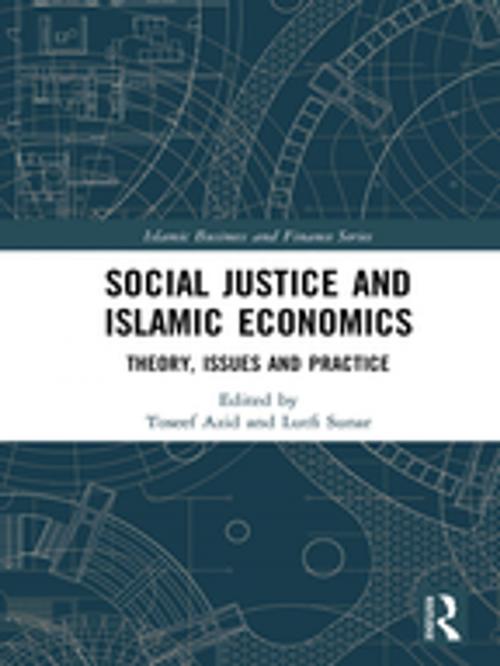Social Justice and Islamic Economics
Theory, Issues and Practice
Business & Finance, Economics, International Economics, Finance & Investing, Banks & Banking, Business Reference, Business Ethics| Author: | ISBN: | 9781351364546 | |
| Publisher: | Taylor and Francis | Publication: | February 25, 2019 |
| Imprint: | Routledge | Language: | English |
| Author: | |
| ISBN: | 9781351364546 |
| Publisher: | Taylor and Francis |
| Publication: | February 25, 2019 |
| Imprint: | Routledge |
| Language: | English |
Under the rule of the current economic order, social injustice is ever-increasing. Issues such as poverty, inhumane working conditions, inadequate wages, social insecurity and an unhealthy labor market continue to persist. Many states are also unable to produce policies capable of resolving these problems. The characteristics of the capitalist system currently render it unable to provide social justice. In fact, on the contrary, the system reinforces these injustices and prevents economic and social welfare from reaching the masses. Many Muslim scholars have analyzed and, indeed, criticized this system for years.
This book argues that an alternative and more equitable theoretical and practical economical order can been developed within the framework of Islamic principles. On the other hand, the experiences of societies under the rule of Muslim governments do not always seem to hold great promise for an alternative understanding of social justice. In addition, the behaviors of Muslim individuals within their economic lives are mostly shaped by the necessities of daily economic conditions rather than by the tenets of Islam that stand with social justice. Until 1990s, studies of Islamic economics made connections between finance and the notion of social justice, but work conducted more recently has neglected this issue.
It is therefore evident that the topic of social justice needs to be revisited in a more in-depth manner. Filling an important gap in existing literature, the book uniquely connects social justice and Islamic finance and economics on this topic. Theory, practice and key issues are presented simultaneously throughout this book, which is based on the writings of a number of eminent scholars.
Under the rule of the current economic order, social injustice is ever-increasing. Issues such as poverty, inhumane working conditions, inadequate wages, social insecurity and an unhealthy labor market continue to persist. Many states are also unable to produce policies capable of resolving these problems. The characteristics of the capitalist system currently render it unable to provide social justice. In fact, on the contrary, the system reinforces these injustices and prevents economic and social welfare from reaching the masses. Many Muslim scholars have analyzed and, indeed, criticized this system for years.
This book argues that an alternative and more equitable theoretical and practical economical order can been developed within the framework of Islamic principles. On the other hand, the experiences of societies under the rule of Muslim governments do not always seem to hold great promise for an alternative understanding of social justice. In addition, the behaviors of Muslim individuals within their economic lives are mostly shaped by the necessities of daily economic conditions rather than by the tenets of Islam that stand with social justice. Until 1990s, studies of Islamic economics made connections between finance and the notion of social justice, but work conducted more recently has neglected this issue.
It is therefore evident that the topic of social justice needs to be revisited in a more in-depth manner. Filling an important gap in existing literature, the book uniquely connects social justice and Islamic finance and economics on this topic. Theory, practice and key issues are presented simultaneously throughout this book, which is based on the writings of a number of eminent scholars.















